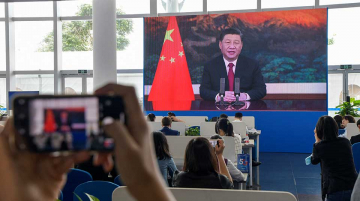
By Felix Brender 王哲謙
With analysts ruminating over the rise of China for the past decades, we have seen a more recent trend among the Western academy that attempts to see what China wants and does through a Chinese lens and perhaps accept that “Western” theorizing might fail to capture Chinese political intentions because of diverging ways of seeing the world.
The approach in itself seems fairly obvious and straightforward. Yet, the deep engagement with knowledgeable Chinese informants and/or chiefly Chinese-language sources appears to have been prohibitive to many researchers. By contrast, Qin Yaqing’s English-language texts targeting an audience trained in the Western humanities tradition made “autochthonous” distinctly Chinese conceptualizations of relationality in IR available to a wider audience. In a nutshell, Qin — Chair Professor at Shandong University — suggests that unlike Western rationality-driven actors, Chinese actors — relationally — prioritize their interpersonal connections (similar to the previously popular guanxi) over “logical” or “rational” institutional choices. Power, then, reflects these intersubjective relations and is context-dependent and malleable.
The explanatory power of this prism is considerable. While few (like University of Notre Dame Associate Professor Joshua Eisenman on PRC party-to-party relations across Africa, Wake Forest University’s Lina Benabdallah on Beijing’s conceptualization of power or Taiwan-based professors Chiung-chiu Huang and Chih-yu Shih on Chinese approaches to security) have explicitly used relationality to explain Beijing’s foreign policy choices, we find relationality in a number of recent seminal pieces on China in the Global South: geopolitical security experts Raffaello Pantucci (S. Rajaratnam School of International Studies, Singapore) and the late Alexandros Petersen’s Sinostan reviews Beijing’s activity in the Eurasian heartland and describes how individual personal networks are the central driver of Chinese influence in the region — even in otherwise highly institutionalized contexts such as in Confucius Institutes.
Similarly, China’s Civilian Army by Bloomberg political reporter Peter Martin sketches out Beijing’s quest for power through its wolf warrior diplomats; again, at its heart, it describes how the PRC constructs and then leverages interpersonal networks established by these wolf warriors rather than institutionalized setups. By the same token, Hidden Hand by Clive Hamilton (Professor of Public Ethics at the Centre for Applied Philosophy and Public Ethics in Melbourne) and Mareike Ohlberg’s (senior fellow with the Asia Program of the German Marshall Fund) on Communist Party interference overseas argues that influence is gained and maintained in a stringently coordinated manner through the personal networks of (Chinese) individuals — again, Hamilton and Ohlberg essentially describe a relational approach. All this is real-life evidence of relationality at play.
Zooming out, then, relationality as both a prism and a method might offer us much greater insight into the mechanisms sustaining and expanding Chinese influence in the world, especially in the Global South. This, in turn, can equip the Global South with tools to understand the workings and impact of Chinese influence in their territories and how to respond to and benefit from it. The Global North, on the other hand, might be well-advised to try and read international relations practice from a Chinese perspective to sustainably and constructively engage with Chinese challenges to Western primacy.
Felix Brender 王哲謙 is a PhD candidate at the London School of Economics & a project associate at LSE Ideas. Lukas Fiala is the project coordinator for the China Foresight initiative at LSE IDEAS.






